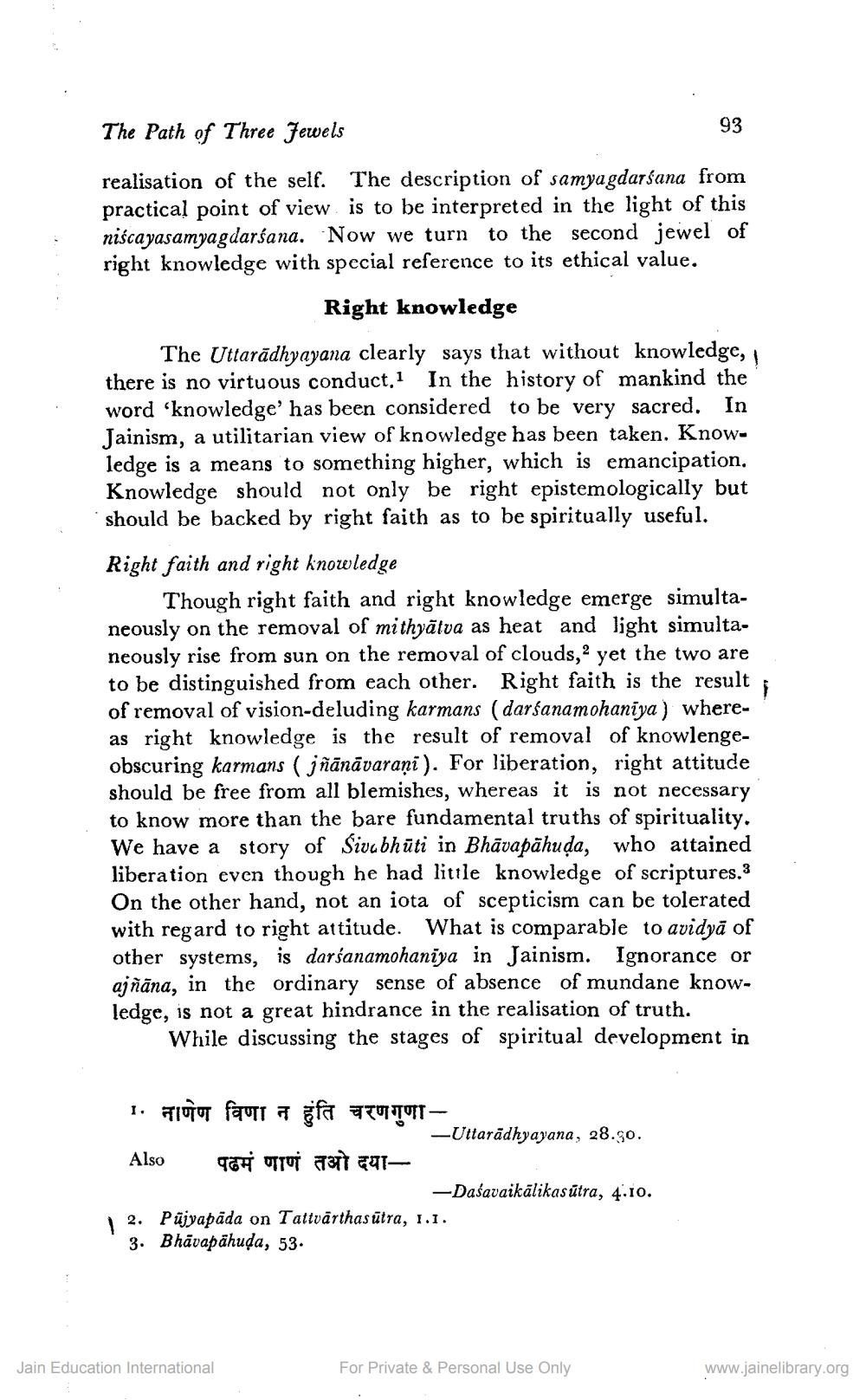________________
The Path of Three Jewels
93
realisation of the self. The description of samyagdarśana from practical point of view is to be interpreted in the light of this niścayasamyagdarśana. Now we turn to the second jewel of right knowledge with special reference to its ethical value.
Right knowledge The Uttarādhyayana clearly says that without knowledge, there is no virtuous conduct. In the history of mankind the word 'knowledge' has been considered to be very sacred. In Jainism, a utilitarian view of knowledge has been taken. Knowledge is a means to something higher, which is emancipation, Knowledge should not only be right epistemologically but should be backed by right faith as to be spiritually useful.
Right faith and right knowledge
Though right faith and right knowledge emerge simultaneously on the removal of mithyātva as heat and light simultaneously rise from sun on the removal of clouds, yet the two are to be distinguished from each other. Right faith is the result of removal of vision-deluding karmans (darśanamohanīya) whereas right knowledge is the result of removal of knowlengeobscuring karmans ( jñānāvaraņi). For liberation, right attitude should be free from all blemishes, whereas it is not necessary to know more than the bare fundamental truths of spirituality. We have a story of Sivabhūti in Bhāvapāhuda, who attained liberation even though he had little knowledge of scriptures.3 On the other hand, not an iota of scepticism can be tolerated with regard to right attitude. What is comparable to avidyā of other systems, is darśanamohanīya in Jainism. Ignorance or ajñāna, in the ordinary sense of absence of mundane knowledge, is not a great hindrance in the realisation of truth.
While discussing the stages of spiritual development in
1. Floor faut 7 ggfa TUT -
-Uttarādhyayana, 28.go. Also HOT 7311 291 –
-Daśavaikälikasútra, 4.10. 2. Pūjyapäda on Tattvārthasūtra, 1.1. 3. Bhāvapähuda, 53.
Jain Education International
For Private & Personal Use Only
www.jainelibrary.org




